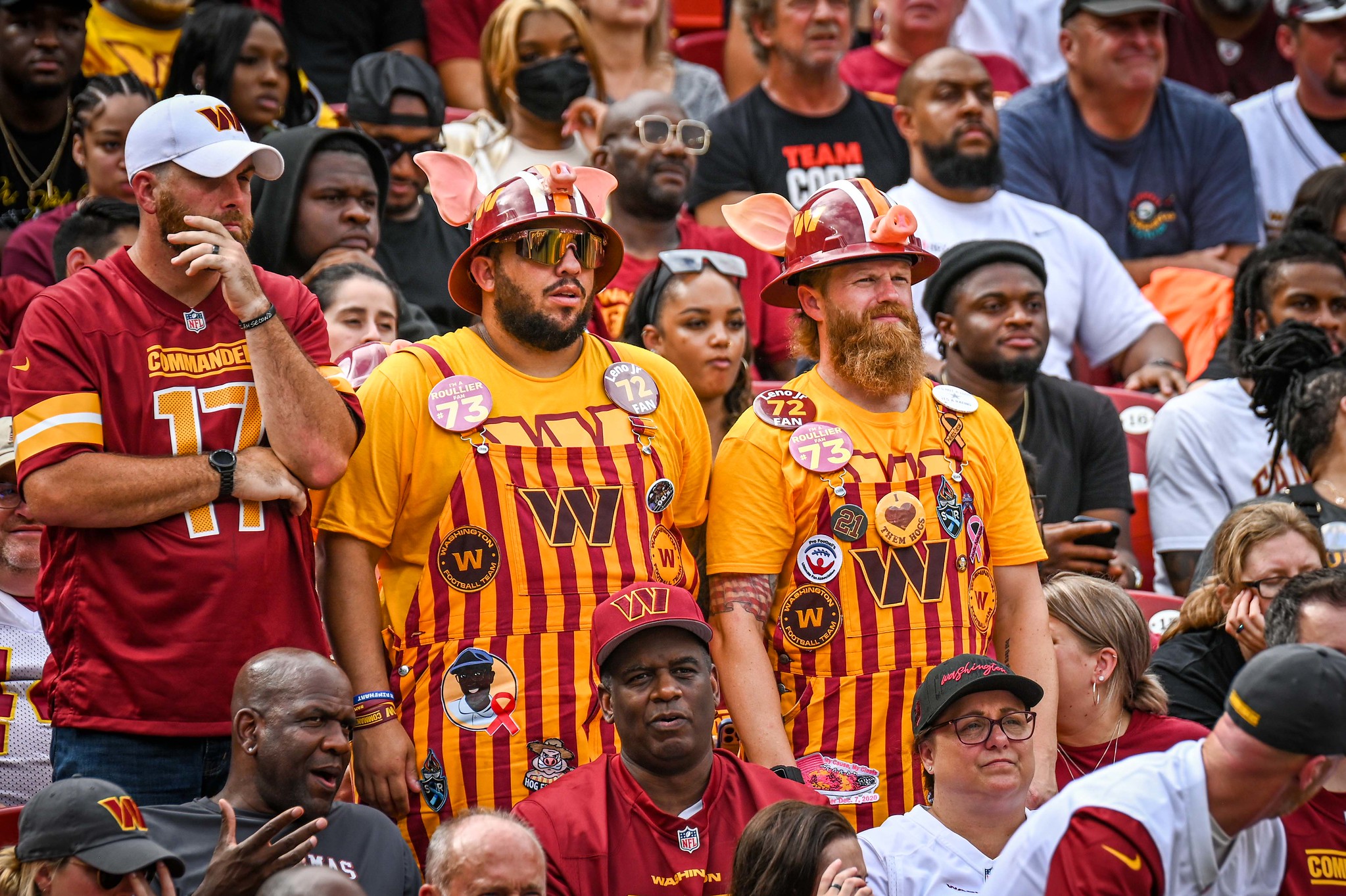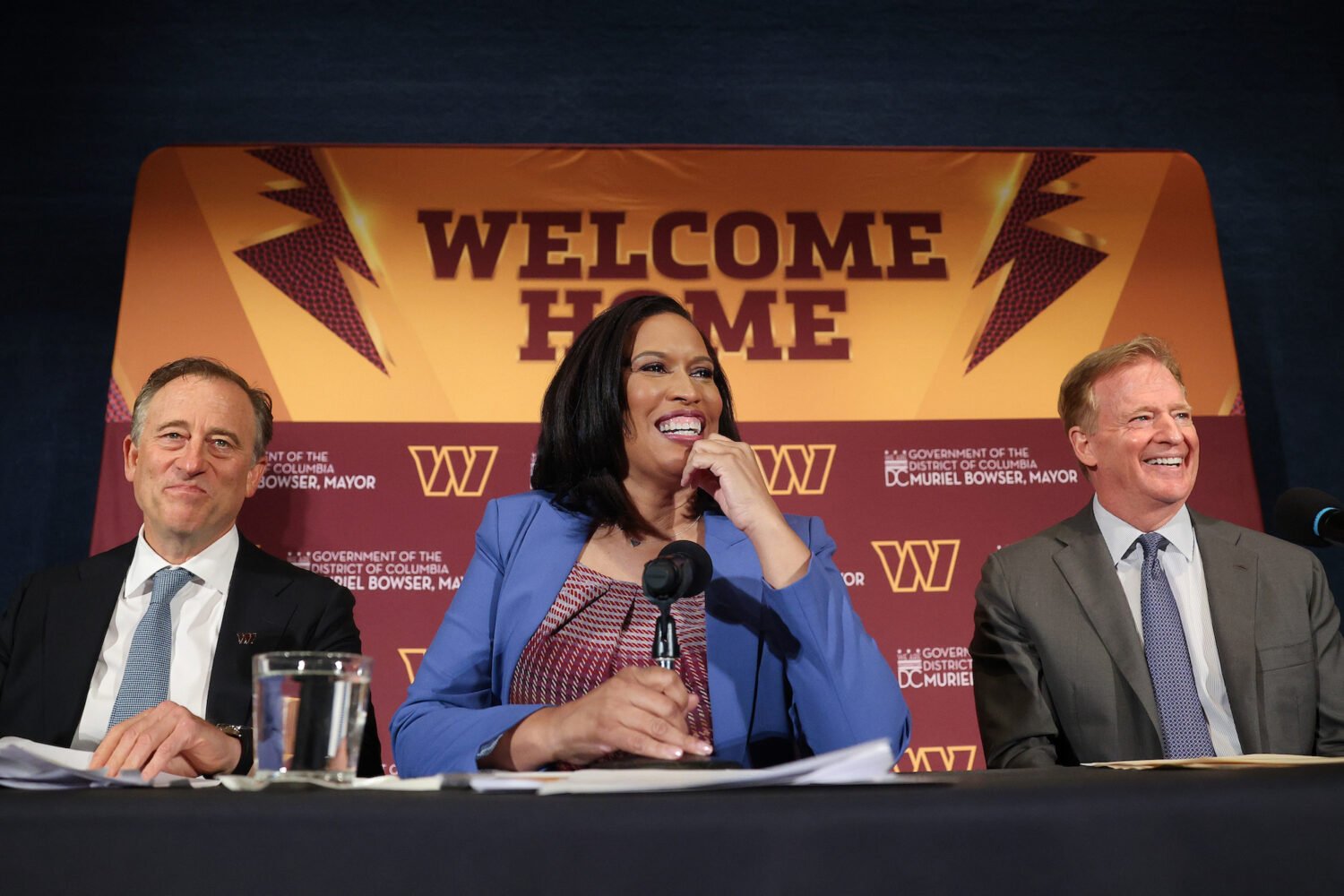If Dan Snyder actually sells the Washington Commanders—and please, let’s all take a moment to converse with our preferred deities and rap our knuckles against the nearest piece of wood before finishing this sentence—then the team’s new owner (or owners) will have their work cut out for them.
After all, FedEx field is falling apart. The on-field product hasn’t been consistently good since the VHS era. Following in the esteemed footsteps of Altria, Accenture, and Meta, the franchise recently had to rebrand away from its longtime moniker, which arguably had become toxic. A who’s who of investigative bodies—Congress, the NFL, attorneys general in Maryland, Virginia, and DC, and the US attorney’s office in the Eastern District of Virginia—are all looking into the Commanders for an alleged toxic workplace and financial improprieties, and the latter probe is a bonafide criminal matter.
Add it up, and the team is, charitably speaking, a distressed asset. However, there’s one very important thing a new owner won’t have to worry about. Fan sentiment. Do locals still love the franchise? Are they ready to care, willing to cheer, and able to spend gobs of money on tickets and jerseys and stadium beers that were priced at inflationary levels long before inflation made a comeback?
Yes. Absolutely. Don’t be fooled by metrics suggesting otherwise.
Granted, the current fan engagement numbers around the franchise are, in technical financial terms, not what you’d want. A once-famed season ticket waiting list has given way to plummeting attendance and tentative plans to replace FedEx Field with the smallest stadium in the NFL. Last season, the Commanders brought in the second-lowest gate revenue in the entire league despite playing in the nation’s fifth-largest metropolitan region for GDP. (Coming in last? The equally sad-sack Detroit Lions, who play in the No. 14 metro region).
Taken together, these figures suggest that through committed, consistent, and comically inept mismanagement, Snyder has slowly and steadily succeeded in brand poisoning one of pro football’s crown jewels. But that’s not the case. The team’s fans, from the remaining diehards to the lapsed and disgruntled, aren’t fed up with the Commanders. They’re fed up with Snyder. His brand is fatally poisoned. Consider:
Dan Snyder might finally sell the Commanders. Are you a:
— Washingtonian 🌸 (@washingtonian) November 2, 2022
More proof is everywhere you look. It can be found online and on talk radio and fan reaction news stories, where news that Snyder might be considering a sale generated more sheer, unadulterated joy than anything the franchise has done on the field this millennium. It can be found at FedEx Field, where a loss last weekend to the Minnesota Vikings was punctuated by chants and T-shirts pleading with Snyder to “sell the team.”
Walt Dowling, 52, here with his daughter. He was at the game a couple weeks ago and saw the fans with the "Sell the Team" signs, which stadium security supposedly asked to be taken down.
Said Dowling: "I decided to get the shirt to see if they tried to make me take it off.” pic.twitter.com/Ozxs2fkgxG
— Nicki Jhabvala (@NickiJhabvala) November 6, 2022
“Sell the team!” Chants from Commanders fans as they leave the stadium. pic.twitter.com/DroleoGsj5
— Stephen Whyno (@SWhyno) November 6, 2022
It can even be found coming from NBA superstar and area native Kevin Durant, who recently told ESPN that he’d love to be part of a new Commanders ownership group—and that as a fan, he is “excited” about a potential sale.
“Our market is incredible,” Durant said. “There’s a lot of support in D.C., a lot of money in D.C. to be made. I feel like we drafted well the last couple years. We got some foundation pieces that can help you win football games moving forward. So yeah, I think it’s an attractive destination … I’m excited to see who they bring in and who they sell the team to and see how we move forward with it.”
Does that sound like someone who is beaten down from years of futility? Who has lost hope? Who has decided to move on to rooting for the Dallas Cowboys or playing pickleball or, God forbid, doing something productive on Sunday afternoons? No, it does not. Durant may be impossibly rich and gifted, but he is also a Commanders fan, and like the rest, he’s still ready for some football. Just without Snyder.


















